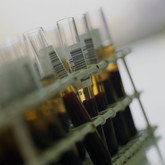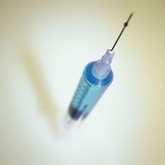Biosimilars/General
Roche sues Pfizer over Herceptin biosimilar
Switzerland-based drug giant Roche has sued pharma giant Pfizer for patent infringement on its blockbuster breast cancer drug Herceptin (trastuzumab) in an attempt to block competition from Pfizer’s trastuzumab biosimilar.
EC publishes biosimilar Q&A document for patients in 23 languages
On 29 November 2017, the European Commission (EC) published a patient-focused Questions and Answers (Q&A) document on biosimilar medicines aimed at patients and the general public.
Biosimilars of palivizumab
Palivizumab is a humanized monoclonal antibody. It targets the fusion protein of respiratory syncytial virus (RSV) inhibiting its entry into the cell and thereby preventing infection. Palivizumab is therefore used in the prevention of RSV infections.
UK launches campaign to promote research on biosimilars
A new campaign launched by the UK’s National Institute for Health Research (NIHR) aims to unlock the potential benefits of biosimilars in the National Health Service (NHS) through clinical trials.
Hospira to pay Amgen US$70 million for epoetin alfa patent infringement
US-based injectables specialist Hospira has been ordered to pay Biotech giant Amgen US$70 million in damages regarding a patent on Amgen’s anaemia blockbuster Epogen (epoetin alfa).
FDA launches educational campaign for biosimilars
In light of the increasing number of biosimilars becoming available in the US, the US Food and Drug Administration (FDA) announced on 23 October 2017 the launch of its education campaign for biosimilars.
NHS England to increase biosimilar usage
On 12 September 2017, National Health Service (NHS) England released a ‘Commissioning framework for biological medicines (including biosimilar medicines)’. In this document, they make a series of recommendations with the aim of increasing both biological and biosimilar uptake. As a result of increased competition between biologicals, creating better value biological medicines and biosimilars, NHS England believes that it can make savings of GBP 200 − GBP 300 million a year by 2020/21 by increasing uptake of these better value biologicals.
FDA updates Purple Book for biologicals and biosimilars
On 21 February 2017, the US Food and Drug Administration’s (FDA) Center for Drug Evaluation and Research (CDER) announced the availability of an updated version of the ‘Purple Book’.
Biosimilars of eculizumab
Last update: 20 October 2017
Eculizumab is a humanized monoclonal antibody that is a terminal complement inhibitor. It is used to treat people with paroxysmal nocturnal haemoglobinuria (PNH), for whom it improves quality of life but does not appear to affect the risk of death. It is also indicated for the treatment of patients with atypical haemolytic uremic syndrome (aHUS) – a disease that primarily affects kidney function – to inhibit complement-mediated thrombotic microangiopathy.
Biosimilars of abatacept
Last update: 28 April 2017
Abatacept is a modified antibody biological drug used to treat autoimmune diseases like rheumatoid arthritis, by interfering with the function of particular cells (T-cells) in the immune system. This action modifies the inflammation and immune activity which cause the symptoms of rheumatoid arthritis.













